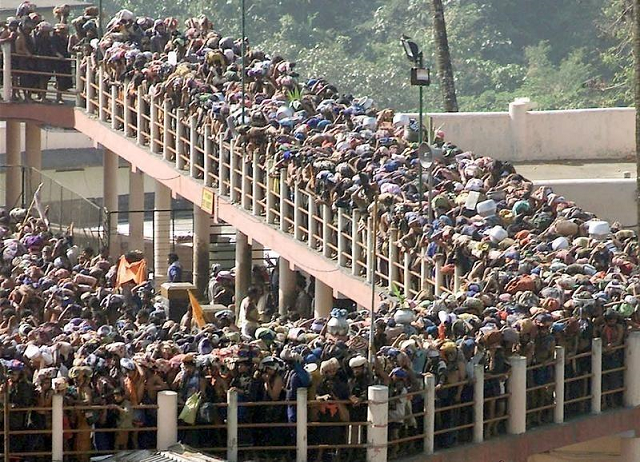
The authorities at the Sabarimala temple, which attracts tens of millions of pilgrims every year, have said the ban was rooted in a centuries-old tradition and is essential to the rites related to the temple's chief deity, Ayyappan.
Indian top court decriminalises adultery
In some Hindu communities, menstruating women are regarded as unclean, leading to restrictions and in a few cases outright bans on women of child-bearing age from entering certain places.
Lifting the ban, the Chief Justice of India said "restrictions put by Sabarimala temple can't be held as essential religious practice".
"No physiological and biological factor can be given legitimacy if it does not pass the test of conditionality," Justice Dipak Misra said in the judgment.
It is the latest in a series of controversial judgments by India's Supreme Court concerning some of the most sensitive issues in Indian society. On Thursday, the court decriminalised adultery and earlier
this month scrapped a law banning gay sex.
The temple's authorities said they will appeal to the Supreme Court for a review of the ruling ahead of its next period of opening, beginning October 16.
"We will go for a review petition after getting support from other religious heads," said A Padmakumar, president of Travancore Devaswom Board, which manages the hilltop temple, about 4,000 feet above sea level.
Indian Supreme Court upholds 'Aadhaar' project as constitutional
The temple remains open only for 127 days in a year and the approach to it entails difficult paths through a forest. Justice Indu Malhotra, the lone dissenting judge and the only woman judge in the five-judge bench, said, "religious practices cannot solely be tested on the basis of the right to equality. It is up to the worshipers, not the court, to decide what is the religion's essential practice".
Two years ago, a Mumbai court ruled that it was the fundamental right of women to enter any place of worship that allows men access, and that the state should protect this right. The struggle for equal access to places of worship in India has triggered a wider debate on women's rights in the country.

1730360426-0/Menendez-Brothers-(2)1730360426-0-165x106.webp)
1732534556-0/taylor-(14)1732534556-0-165x106.webp)
1725872216-0/Tribune-Pic-(3)1725872216-0-165x106.webp)
1732532771-0/BeFunky-collage-(89)1732532771-0-165x106.webp)
1732518687-0/Copy-of-Untitled-(78)1732518687-0-270x192.webp)











COMMENTS (2)
Comments are moderated and generally will be posted if they are on-topic and not abusive.
For more information, please see our Comments FAQ